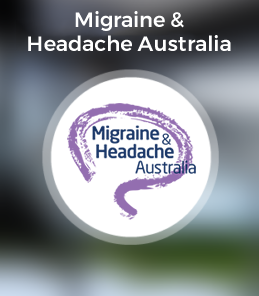See also Motor Neuron Disease
Description
Amyotrophic lateral sclerosis (ALS), also known as Lou Gehrig’s disease, is a degenerative disorder of specific nerve cells of the spinal cord, brain stem and brain. It belongs to a group of disorders known as motor neuron diseases, and results in the gradual loss of voluntary muscle control leading to paralysis.
ALS generally strikes patients in mid-life, and affects men more frequently than women. About 5 percent to 10 percent of cases appear to be inherited, in some cases, due to a mutation in the gene for an enzyme called copper/zinc superoxide dismutase-1 (SOD1).
Symptoms of ALS include progressive muscle weakness beginning in the limbs, muscle twitching and cramping, slowed speech becoming progressively harder to understand, difficulty in breathing and swallowing; persistent fatigue, weight loss resulting from muscle atrophy and difficulty in swallowing.
Treatment
Management needs to be multidisciplinary, involving physiotherapists (mobility and prevention of contractures); speech therapists (communication aids and swallowing assessment); occupational therapists (maintaining function); social workers (counselling and organising home support); and dietitians (particularly with percutaneous endoscopic gastrostomy feeding), all co-ordinated by the supervising neurologist or physician, collectively maximizing function and alleviating symptoms.
Although there is currently no cure for ALS, new treatments are becoming available. At present Riluzole (Rilutek) is the only FDA-approved drug for ALS, and it has a modest effect in prolonging survival (estimated to be 3-6 months). Although licensed worldwide, Riluzole was only recently made available in Australia, and is currently being re-considered for listing by the Pharmaceutical Benefits Advisory Committee. Other promising new treatments under study include: gabapentin (Neurontin); insulin like growth factor I (Myotrophin); and antioxidants.
Patients should carefully consider the option of using a mechanical respirator in the event that they become unable to breathe on their own so that decisions about emergency resuscitation can be made according to the patient’s wishes in the event of a respiratory crisis (life-threatening breathing problems).
Prognosis
Patients with ALS generally live an average of three to five years after the onset of symptoms. Most eventually die from respiratory insufficiency or from lung infections that tend to occur when breathing is impaired for long periods of time.
Some of the ALS Research We Have Funded
In 2022 Dr Frederik Steyn was the recipient of Brain Foundation grant funding into ALS – click for more.
In 2021 Dr Emma Devenney was the recipient of Brain Foundation grant funding into ALS – click for more.
In 2019 A/Professor Seth Masters was the recipient of Brain Foundation grant funding into ALS – click for more.
In 2018 Dr Parvathi Menon was the recipient of Brain Foundation grant funding into ALS – click for more.
In 2018 Dr Fleur Garton was the recipient of Brain Foundation grant funding into ALS – click for more.
Further Information and Support
Click here for the latest Australian research papers on Amyotrophic Lateral Sclerosis.
2012 Research Applicant Essay – Catherine Blizzard
Motor Neurone Disease Association of NSW
Tel (02) 8877 0999 or 1800 777 175
Gladesville Hospital, Victoria Road, Gladesville NSW 2111
Email: mndansw@netspace.net.au
www.mndnsw.asn.au
Motor Neurone Disease Association – Britain
www.mndassociation.org
Read more at Virtual Medical Centre
Reviewed by Dr Matthew Kiernan, PhD FRACP, Consultant Neurologist, Prince of Wales Hospital, Randwick.
DISCLAIMER: The information provided is designed to support, not replace, the relationship that exists between a patient / site visitor and his / her existing health care professionals.





 The Brain Foundation is the largest, independent funder of brain and spinal injury research in Australia. We believe research is the pathway to recovery.
The Brain Foundation is the largest, independent funder of brain and spinal injury research in Australia. We believe research is the pathway to recovery.